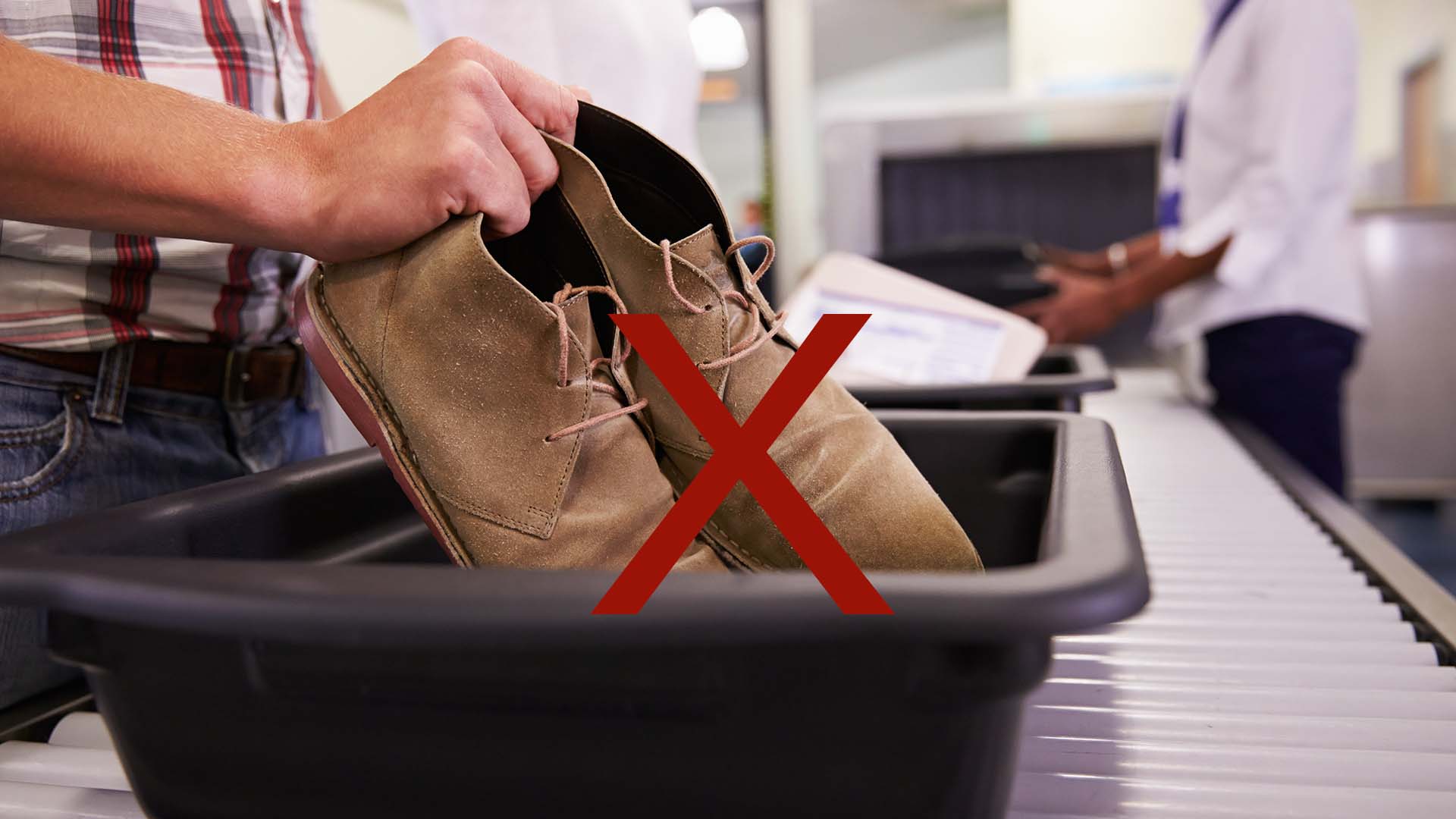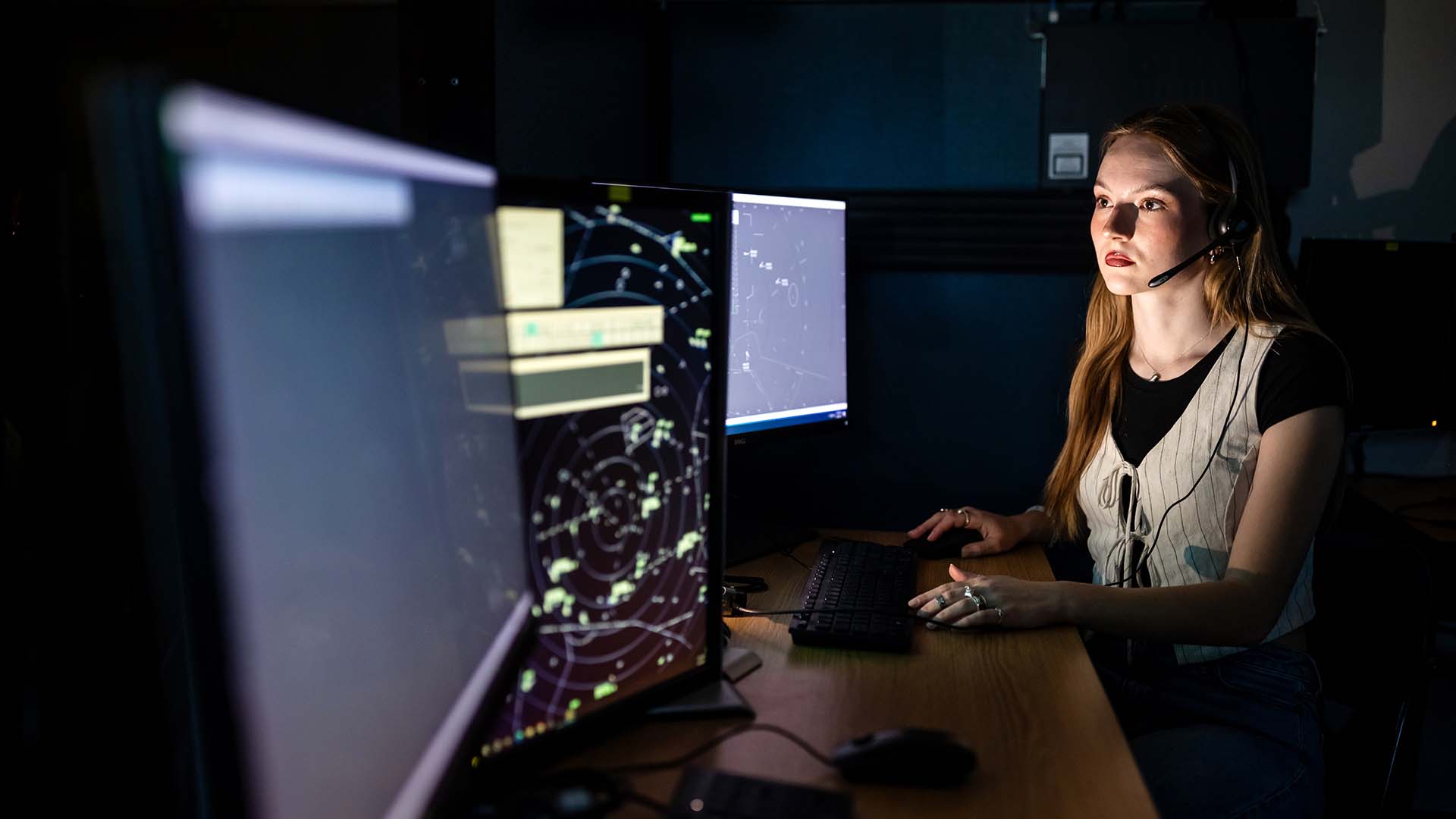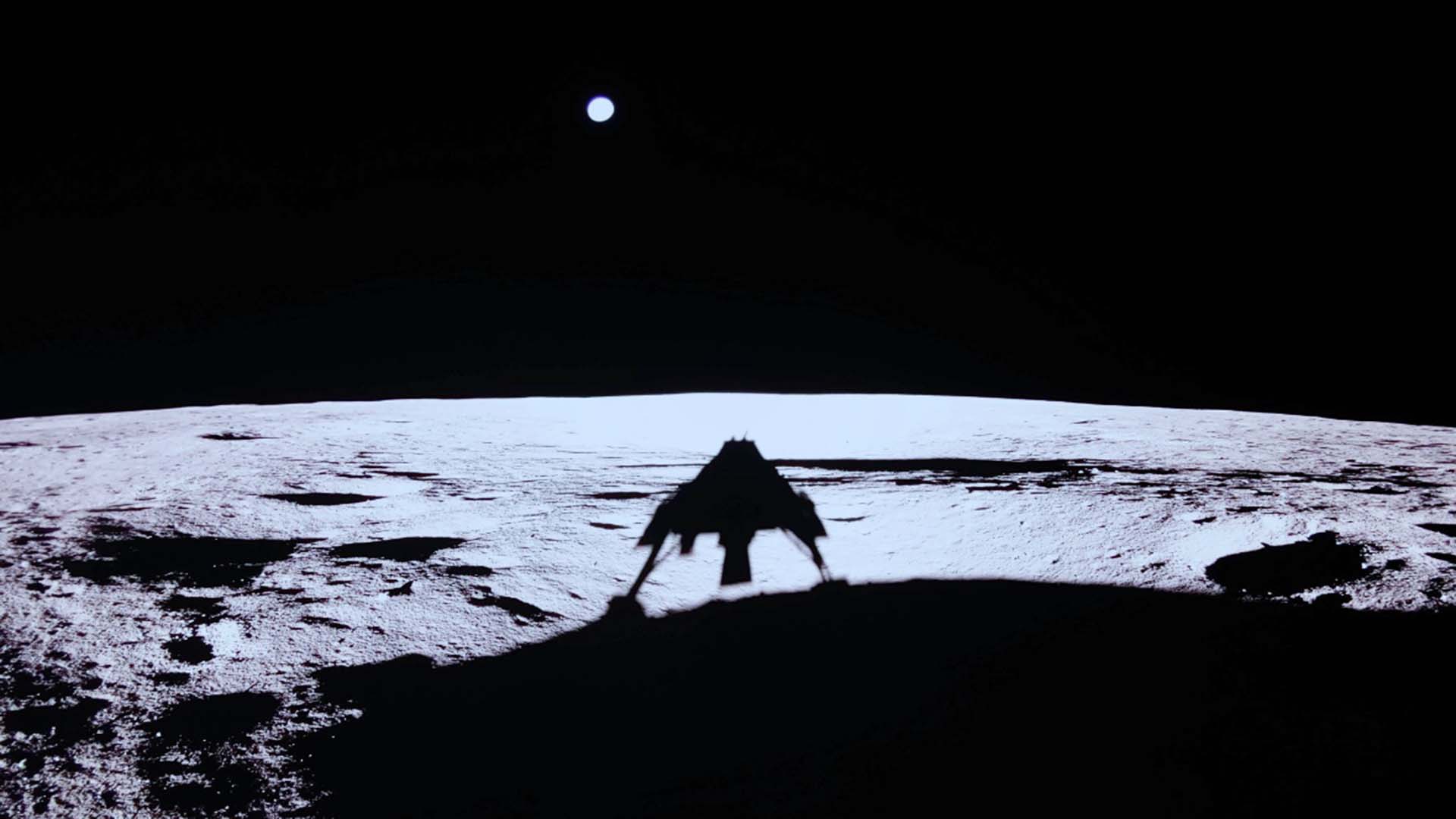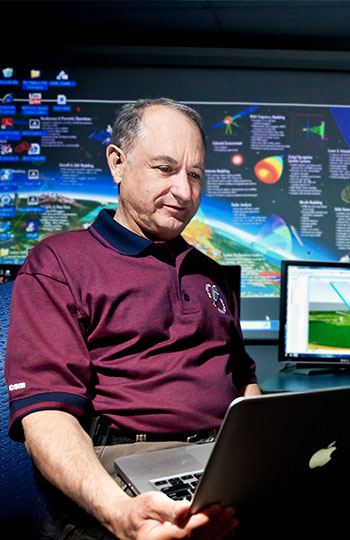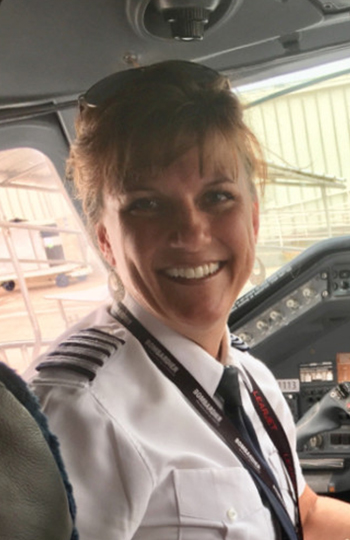Justin Darnall wants to get humans back to the moon — and beyond
MSU Denver grad is responsible for developing and managing the human lunar landing system for NASA’s Artemis V mission.
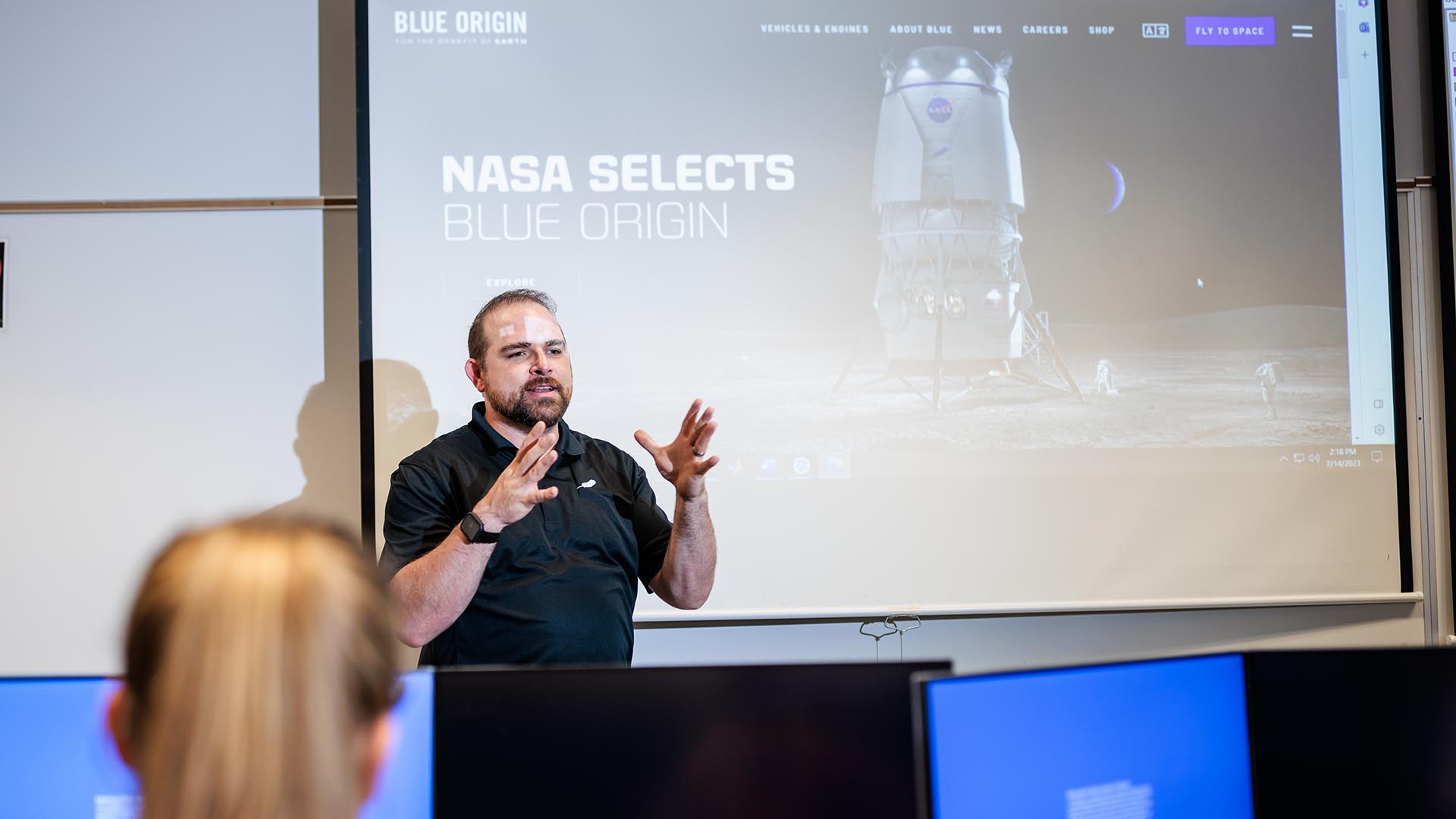
More than 50 years ago, the astronauts of the Apollo 17 lunar landing mission became the last humans to set foot on the moon.
Justin Darnall is working to make a 240,000-mile return trip possible by the end of the decade.
As Blue Origin’s senior manager of software development, testing and deployment – lunar transportation, Darnall is responsible for developing and managing the human lunar landing system for NASA’s Artemis V mission to the moon. Blue Origin, a private spaceflight company and aerospace manufacturer, made headlines in October 2021 by boldly sending actor William Shatner into space.
RELATED Q&A: The Artemis space program
Despite the magnitude of his task, the 2019 graduate of Metropolitan State University of Denver is prepared for the challenge. “Sometimes, it feels like a lot,” he said. “But I’m excited to take it on.”
Launch prep
Darnall never expected to find himself on the brink of making space history. In fact, he didn’t even know he wanted a career in aerospace until he got to the University.
After eight years in the Marine Corps, followed by a string of ill-fitting jobs, Darnall used the GI Bill to enroll at MSU Denver in 2016. He majored in Aerospace Systems Engineering through the University’s Individualized Degree Program. A self-proclaimed “awful student” in high school, he excelled in college by treating coursework like a job and maintained a 4.0 GPA.
Darnall quickly developed a vision for his future. “I was interested in the mechanical side of things — I wanted to build rockets,” he said. But getting a late start in looking for internships for his final semester sent him down a different path.
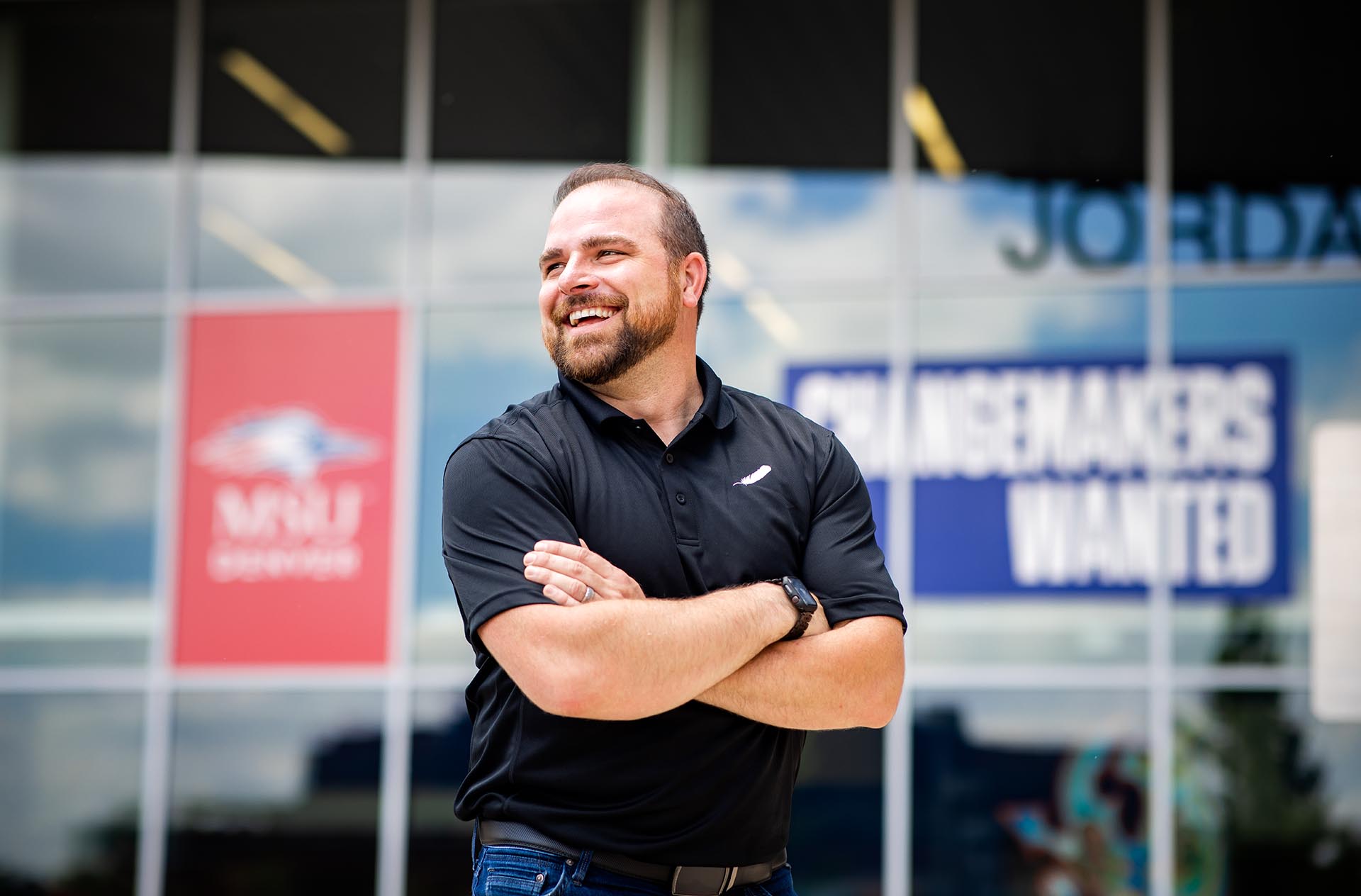
With many companies having already filled their summer intern positions, Darnall turned to alumna Magens Orman for assistance. The then-MSU Denver Alumni Association board member helped Darnall secure a spot on the Sierra Nevada Corp. Flight Software/Guidance Navigation and Control team. The position ignited his love of software.
“The internship was the last thing I needed to graduate,” he said. “(Networking with alumni) saved me.”
Team mission
Darnall started giving back to the University shortly after graduation by joining Orman on the Alumni Association Board of Directors. Since then, he has expanded the talent pipeline between MSU Denver and the aerospace industry by making gifts to support the University’s Classroom to Career Hub, presenting to classes and engaging with students. He has also offered professors guidance in aligning curricula with employers’ needs, bridging the gaps between what students are learning and what they need to know. For example, he trained a professor and interns on MATLAB, a programming language used for technical computing, helping the students expand their skill sets and preparing them to excel in the ever-changing aerospace environment.
Darnall said recent graduates with real-world experience have a leg up on their peers. “When employers keep winning contracts and are perpetually behind with hiring, they need people who know what they’re doing,” he said. One of his guiding principles in team-building is to ensure that there is an even split between experienced and inexperienced members so the group can come up together.
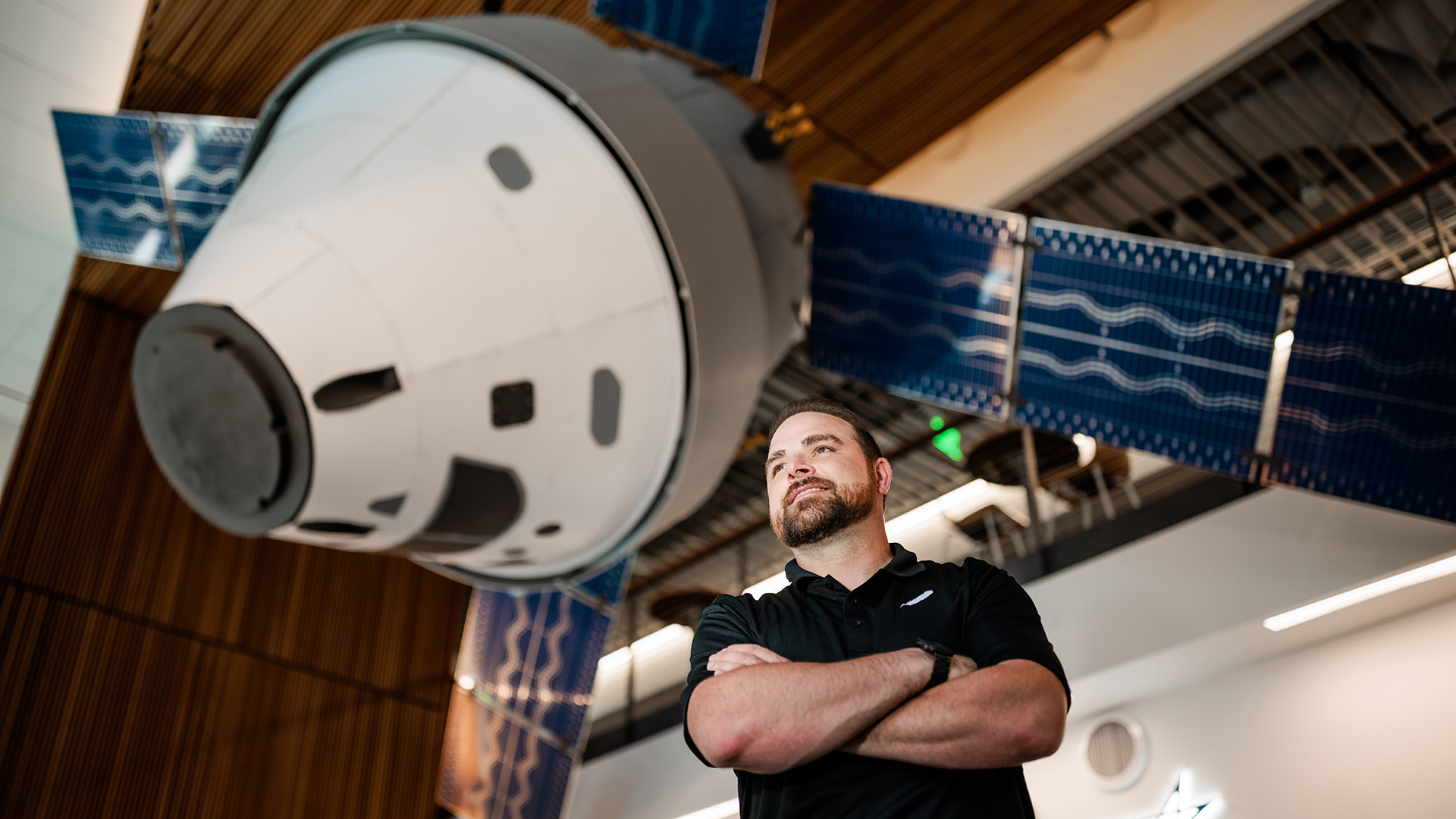
All systems go
Having the right people on his team will be vital in getting humans back to the moon. That colossal task includes building from scratch software that is certified to safely transport humans on a spacecraft. “If humans are going to get on something that’s going into the most intense environment known to (humankind), the software better not have some glitch where it resets like our phones,” Darnall said.
RELATED VIDEO: Robotics Club tackles lunar-colony challenge
But getting humans back on the lunar surface is only the beginning. The goal, Darnall said, is for the moon to become a steppingstone to the rest of the galaxy. Once a lunar space station is built from which shuttles can launch, space travel to other planets will be more efficient and sustainable.
Even with the lofty goals, Darnall maintains there is nothing special about him. “I’m not a genius,” he said. “I put in the effort, and others helped me along the way.”
You might say he’s just another MSU Denver graduate working hard to reach the stars.

